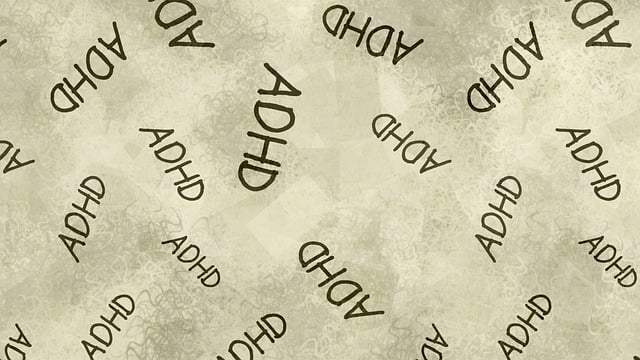Public awareness campaigns leveraging Lone Tree Acceptance and Commitment Therapy (ACT) as a narrative tool can significantly impact mental health advocacy. By destigmatizing mental illness, these campaigns emphasize ACT's benefits – building inner strength, enhancing social skills, and improving quality of life. Through compelling storytelling, they create engaging coaching programs and podcasts that inspire mindfulness and resilience. Crafting personalized messages that address pain points and aspirations increases effectiveness, with evaluations measuring reach, engagement, and behavioral shifts to ensure impact. Ultimately, successful campaigns drive improvements in public mental wellness.
Public awareness campaigns play a pivotal role in educating communities and driving meaningful change. This article explores their essence, impact, and evolution, with a unique lens focused on how techniques like Lone Tree Acceptance and Commitment Therapy (ACT) can enhance their effectiveness. We delve into the art of storytelling as a potent tool, guide you through crafting compelling messages, and provide strategies for measuring success. By understanding these elements, campaigns can create lasting impacts and foster positive behavioral shifts in society.
- Understanding Public Awareness Campaigns: Their Role and Impact
- The Power of Storytelling in Raising Awareness
- Crafting Effective Messaging: Strategies for Success
- Measuring Success: Evaluating the Effectiveness of Campaigns
Understanding Public Awareness Campaigns: Their Role and Impact

Public awareness campaigns play a pivotal role in shaping societal attitudes and behaviors by disseminating vital information and knowledge. These campaigns serve as powerful tools to educate and engage communities, fostering a deeper understanding of various issues and encouraging positive change. By leveraging creative communication strategies, they have the potential to ignite conversations, challenge misconceptions, and promote actions that can lead to tangible improvements in public health and well-being.
In the context of Lone Tree Acceptance and Commitment Therapy (ACT), for instance, awareness campaigns can help destigmatize mental health concerns and encourage individuals to embrace inner strength development. Through compelling narratives and targeted messages, they can highlight the effectiveness of ACT in fostering resilience, improving social skills training, and enhancing overall quality of life. These initiatives create a ripple effect, influencing not just individuals but also communities at large, ultimately contributing to a more informed and supportive environment for mental health advocacy.
The Power of Storytelling in Raising Awareness

In the realm of public awareness campaigns, storytelling serves as a powerful tool to captivate and engage audiences. The art of narrative has the unique ability to convey complex messages in an accessible manner, making it an invaluable asset for initiatives aimed at promoting mental wellness. By weaving compelling stories that resonate with people on an emotional level, campaigns can foster a deeper understanding of issues such as anxiety, depression, and stress—topics closely tied to the principles of Lone Tree Acceptance and Commitment Therapy (ACT). This therapeutic approach encourages individuals to embrace mindfulness meditation and cultivate present-moment awareness, which can significantly enhance mental wellness.
Integrating storytelling into awareness campaigns also opens up opportunities for developing engaging Mental Wellness Coaching Programs and producing captivating Mental Wellness Podcast Series. Through these mediums, personal narratives can be shared, offering practical insights and strategies that inspire listeners to take charge of their mental health. Just as a lone tree stands tall and resilient against the elements, so too can storytelling empower individuals to navigate life’s challenges with greater resilience and emotional balance.
Crafting Effective Messaging: Strategies for Success

Crafting compelling messages is a cornerstone of successful public awareness campaigns. To effectively communicate complex topics like Lone Tree Acceptance and Commitment Therapy (ACT), simplify and personalize the narrative. Start by identifying the target audience’s pain points and aspirations, then translate ACT principles into relatable language that resonates with them. For instance, frame burnout prevention strategies for healthcare providers as a call to self-care, emphasizing how maintaining mood management can lead to more fulfilling patient interactions.
Incorporating Trauma Support Services within these messages is crucial, acknowledging the prevalence of trauma in society and its impact on mental health. Highlight ACT’s ability to equip individuals with tools to navigate traumatic experiences and promote resilience. By integrating these services seamlessly into awareness campaigns, you create a supportive ecosystem that encourages those struggling to seek help without stigma, fostering open conversations about mental well-being.
Measuring Success: Evaluating the Effectiveness of Campaigns

Evaluating the success of public awareness campaigns is a crucial step in understanding their impact and identifying areas for improvement. This process involves assessing both short-term and long-term goals, ensuring that the campaign has achieved its intended outcomes. Metrics such as reach, engagement, and changes in behaviour or attitudes are essential indicators of effectiveness. For instance, measuring the number of individuals who have accessed online resources or participated in workshops related to Mental Wellness can demonstrate the campaign’s success in raising awareness.
In the context of Lone Tree Acceptance and Commitment Therapy (ACT), evaluating the campaign’s effectiveness could involve tracking the number of people seeking therapy or showing interest in self-improvement. Additionally, measuring changes in perceptions and attitudes towards mental health challenges through surveys or feedback forms is another valuable method. By providing Crisis Intervention Guidance, successful campaigns can lead to increased confidence boosting and positive shifts in behaviour, ultimately contributing to improved public mental wellness.
Public awareness campaigns play a pivotal role in educating and inspiring positive change. By employing compelling storytelling techniques and strategically crafted messages, initiatives like Lone Tree Acceptance and Commitment Therapy can effectively reach and engage audiences. Measuring success through evaluation ensures these campaigns achieve their intended impact, fostering a more informed and supportive community. Through dedicated effort and data-driven insights, each campaign has the potential to be a game-changer in creating lasting behavioral shifts.














